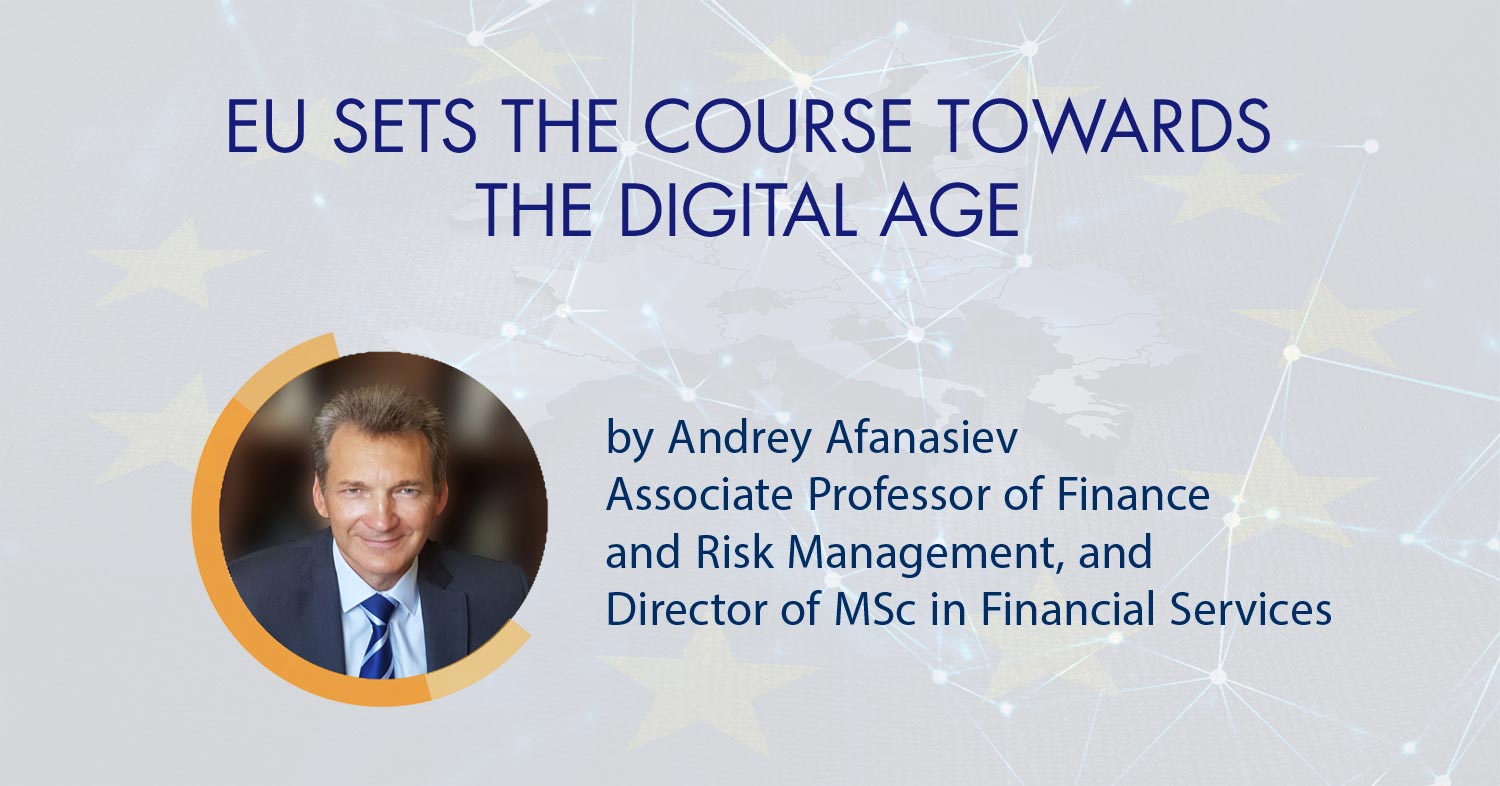Many people feel their lives have been on pause since the COVID-19 pandemic began. Meanwhile, the world is fast moving forward. The speed of changes and the nature of the challenges are sometimes difficult to grasp. We are moving faster and faster from the Golden, Heroic and Iron Ages to the Digital Age.
In March 2021 the European Commission presented the Digital Compass for the EU’s development during the digital decade by 2030. The Digital Compass sets four main cardinal points of the digital evolution: digital skills, digital infrastructures, digitalization of business, digitalization of government. These four dimensions cover both economy and society. All aspects of daily life are going to be changed.
Being a policy priority, the digital innovations will be promoted, facilitated, and accelerated by the Government. They will be executed and implemented in a more organized and purpose-focused manner.
The main strategic digital targets in Europe by 2030 are the following:
- skills: 80% of the population – basic digital skills; 20 million – highly skilled digital professionals;
- infrastructures: all populated areas covered by 5G; achieve 20% of world semiconductors production; quantum computer by 2025;
- business: 75% of companies to take up cloud computing services, big data, artificial intelligence; 90% of SMEs – a basic level of digital intensity;
- public services: 100% online access to key public services; 100% online access to the medical records; 80% of citizens – use of a digital ID (identification solution).
These targets are high-level. They will trigger other numerous innovations, like a digital EURO, FinTech companies, EU single digital market, etc. Let’s take as an example, the “sea and sun” industry – Tourism and Hospitality, which is a core economic sector in Cyprus. Already now tourists use their gadgets on the sunbeds, in the sea and even underwater. Meanwhile, new digital technologies are going to be implemented at all stages: air-tickets purchases, hotel booking, taxi ordering, communication with an agent, etc. It is difficult to mention and even imagine all upcoming digital innovations.
In September 2021 the European Commission proposed a path to the digital decade, which translates the above digital ambitions into a concrete delivery mechanism.
The EC will develop EU-level trajectories for each target together with the Member States. The Member States will then draft national trajectories and strategic roadmaps to attain the targets. A discussion at the national level is necessary because different national starting points, resources, comparative advantages, and other relevant factors should be considered.
The annual cooperation cycle, which is proposed by the digital path, includes progress monitoring employing the Digital Economy and Society Index (DESI). The DESI is a composite index published by the EC since 2014.
Cyprus ranks 24th out of the 28 EU Member States in the 2020 edition of the DESI index. So, a lot of work is ahead. The DESI index will further serve as the analytical basis for the European-wise report on the “State of the Digital Decade”.
The path to the digital decade set out provisions on multi-country projects. The examples of multi-country projects are the following: the next generation of low power trusted processors; Pan-European 5G corridors; super- and quantum computers; ultra-secure quantum and space-based communication infrastructures; European Blockchain Services; Digital Innovation Hubs, etc.
A European Digital Infrastructure Consortium (EDIC) is a new instrument proposed by the EC to simplify the implementation of multi-country projects, where other existing legal frameworks may not be appropriate. Each consortium will have its own legal personality, governing body, statutes, and seat in a participating Member State.
What are the next steps? By December 2021 the EC shall communicate on establishing a Declaration on Digital Principles. Within 6 months following the entry into force of the Digital Decade Policy Programme, Member States shall propose strategic national roadmaps to pursue the digital targets at the national level. The European Commission shall review the digital targets by 2026.
Meanwhile, life can’t be only digital, to keep life balance, it is good to have elements from the Golden, Heroic and Iron Ages as well.
About the Author
Dr Andrey Afanasiev
Associate Professor of Finance and Risk Management, the Director of the MSc in Financial Services
CIIM – Cyprus International Institute of Management


